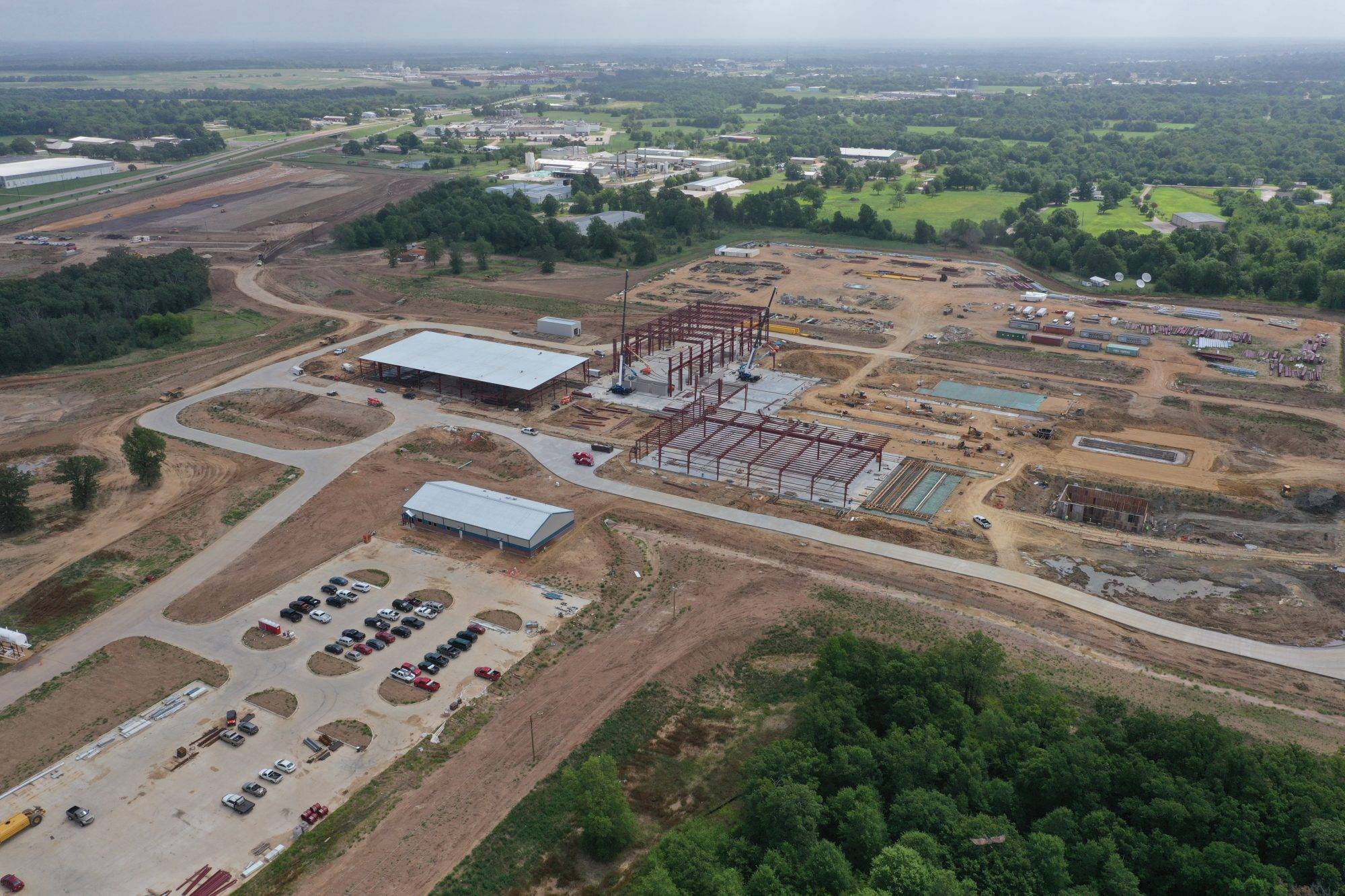Project Details:
Location: Paris, Texas
Project Value: $110 Million
General Contractor: HWH 1887
Owner: American SpiralWeld

Location: Paris, Texas
Project Value: $110 Million
General Contractor: HWH 1887
Owner: American SpiralWeld
The American SpiralWeld Plant #3 in Paris, Texas, is a $110 million design-build manufacturing project spanning 144 acres. Effective CPM scheduling and project controls were crucial in ensuring the timely completion and efficiency of this massive facility. The facility includes a 283,421-square-foot main pipe plant, a 9,500-square-foot main office, a 1,440-square-foot coatings storage building, and a 1,000-square-foot shipping office, all managed through rigorous CPM scheduling and project controls.
The project required precise schedule development, sequencing, and real-time controls. A senior scheduler created the baseline schedule early, aligning design milestones with procurement, site development, and construction phasing using CPM scheduling and project controls. Close coordination with engineers and contractors ensured accurate activity durations and logical relationships between trades.
With multiple buildings and infrastructure elements progressing simultaneously, effective planning became essential. The team prioritized long-lead items, utility tie-ins, and equipment installation sequences to prevent delays. Regular check-ins with field teams allowed for early adjustments and maintained alignment with project goals.
Throughout construction, monthly updates tracked progress, forecasted risks, and drove decisions. When grading delays emerged, the team resequenced foundation work to avoid downtime. Updated look-ahead schedules provided clear direction for subcontractors and guided daily planning efforts in line with CPM scheduling and project controls.
Weekly coordination meetings enhanced collaboration between all stakeholders. Specifically, discussions covered milestone tracking, resource planning, and safety-focused scheduling. These meetings ensured the schedule reflected real-time field activity and resolved emerging conflicts quickly.
The scheduling team also monitored site logistics, subcontractor capacity, and weather impacts. They issued variance reports, updated forecasts, and shared daily changes with decision-makers. These efforts kept stakeholders informed and allowed for timely responses.
Currently, the project continues to move forward on time and within scope. Strong schedule controls, detailed phasing, and constant coordination stemming from CPM scheduling and project controls have proven essential on this large-scale industrial build.
Overall, this ongoing project showcases how disciplined scheduling through CPM scheduling and project controls can support complex manufacturing builds across diverse scopes and aggressive timelines.